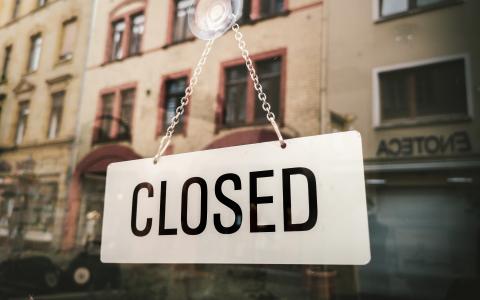
Charles Myers was sitting in a first-class seat on a flight from New York to Dallas when his phone started blowing up Thursday. News had just broken that the wealthiest Americans could soon face a tax rate as high as 43.4% on gains from their investments.
The chairman of Signum Global Advisors wasn’t thrilled.
“Raising capital gains taxes hurts the capital markets,” he said in a text message. “Better to raise the personal top marginal rate and estate tax. Leave capital gains and dividends alone.”
Myers has raised funds for Joe Biden, and wasn’t shocked by the White House’s plan because it was part of the president’s campaign. But the donor doesn’t think that 43.4% rate will make it into final legislation.
As the plane descended, he added: “Over-taxing success is un-American.”
Wealth Gap
Pressure has been building to raise levies on the wealthy after decades of tax cuts that disproportionately benefited the top 1%. Politicians at the national and state levels have recently proposed or passed higher rates, but the measures were largely focused on income taxes.
The plan to target investment gains strikes at the heart of what makes the wealthiest Americans ever more wealthy.
The country’s richest 1% own more than 50% of the equity in corporations and in mutual fund shares, according to Federal Reserve data. The next 9% of the wealthiest own more than a third of equity positions. Added together, the top 10% of Americans hold more than 88% of shares.
Meanwhile, the bottom 90%’s equity exposure has been dropping for almost two decades. That meant last year’s stock market surge widened the nation’s wealth gap further, leaving the 10 richest Americans with more than $1 trillion, according to the Bloomberg Billionaires Index.
Now, Biden wants to help pay for a raft of social spending that addresses long-standing inequality by taxing investment gains more, according to people familiar with his proposal.
Billionaire venture capitalist Tim Draper isn’t persuaded. He said raising federal rates to as high as 43.4% would sound the death knell for Silicon Valley and American job creation.
A similar sentiment was echoed by Michael Sonnenfeldt, founder and chairman of Tiger 21, a network of wealthy entrepreneurs, investors and executives with an average of $100 million in assets.
“When you raise taxes dramatically you create disincentives so that people hang on to assets longer than they might have to avoid a high capital gains tax,” he said. “That capital might have been better deployed in the next business that will create jobs.”
Under Biden’s plan, the capital gains tax rate for wealthy individuals will rise to 39.6% from the current base rate of 20%. For those earning $1 million or more, the new top rate will be coupled with an existing surtax.
High earners also face the prospect of rising income taxes. In New York earlier this month, lawmakers agreed to hike taxes on those taking home more than $1 million -- with some of the state’s richest residents facing a combined marginal rate of 51.8%. Americans with income of more than $400,000 a year are bracing for higher federal taxes from the Biden administration too.
Still, Biden isn’t a fan of directly taxing the rich’s assets -- as opposed to raising rates on their sources of income -- even though some progressive Democrats have pushed for such a wealth tax. But advocates are trying to get it implemented on the state level.
‘Philosophical Reversal’
Veteran venture capitalist Alan Patricof, who has also raised funds for Biden, said the latest plan would be nothing short of a “philosophical reversal” of the landscape that has prevailed for decades.
It would “turn on its head the concept of incentivizing individuals to invest in companies using their capital with a preferential tax rate,” he said. But Patricof is trying not to get too worked up about it, for the time being. “Let’s see what the actual proposal looks like before making a judgment.”
U.S. stocks fell by the most in five weeks on news of Biden’s proposal, as speculation swirled that investors would sell shares before the higher rate is implemented.
“If the 43.4% rate becomes a reality, it will likely trigger an exodus from some of the biggest market cap stocks as many investors will likely seek to lock in their capital gains at the existing rate before year end,” said Jimmy Chang, the chief investment officer at the Rockefeller Global Family Office.
Morris Pearl, a former managing director at BlackRock Inc., chair of the Patriotic Millionaires, and co-author of the book “Tax the Rich!,” said he doesn’t foresee a massive shift in investor behavior.
“There will still be people with money to invest and they’ll still invest it,” he said. “Putting my money under the mattress is the alternative, and mattresses don’t pay much at all.”
Investors may have been taken by surprise that the proposed tax will target those earning over $1 million, not just investment gains in excess of $1 million, said Jack Ablin, chief investment officer at multifamily office Cresset Capital. By aiming at the former, the president is casting “a wider net,” he said.
Tiger 21’s Sonnenfeldt, meanwhile, is optimistic about the U.S. “Bottom line is I’m still bullish on America’s potential and will want to invest in its future, but at the margin this will change some of the calculus as to where best to put those dollars,” he said.
Venture capitalist Draper proposed a potential haven for concerned investors. In a follow-up tweet, he said the “antidote for oppressive government and runaway taxes is... #Bitcoin.”
This article originally appeared on Bloomberg.



